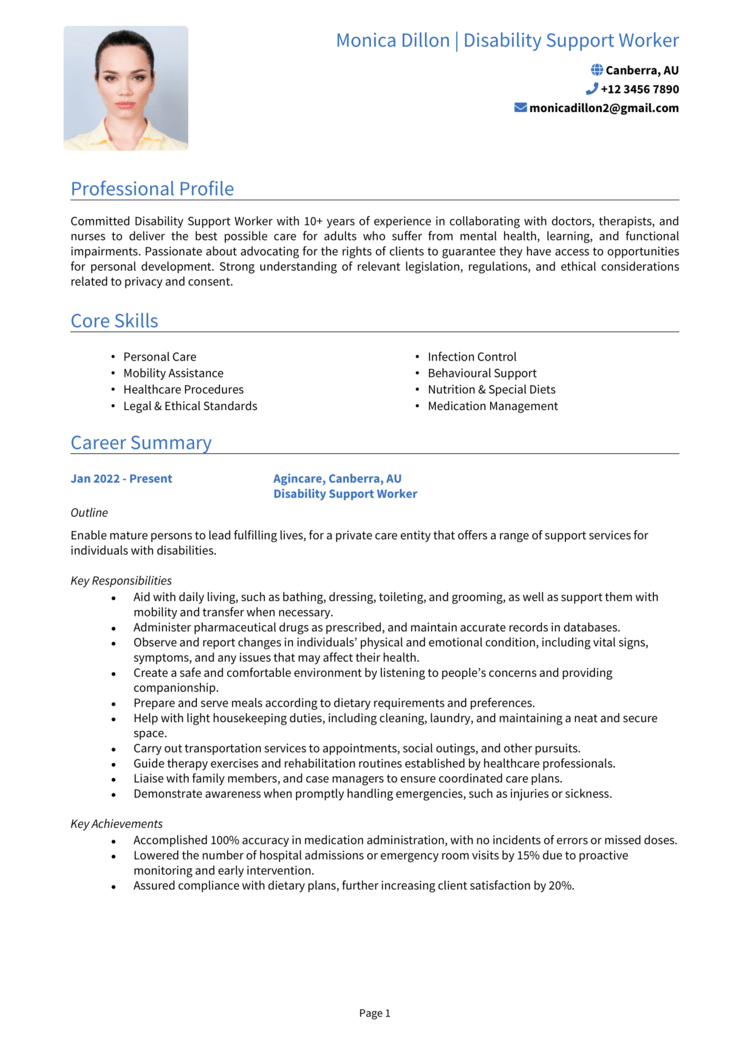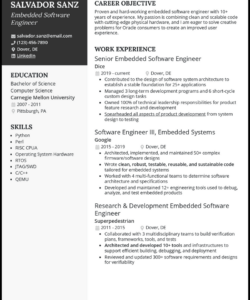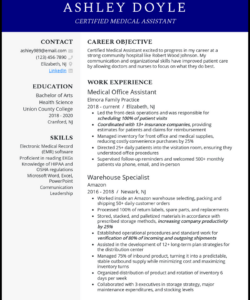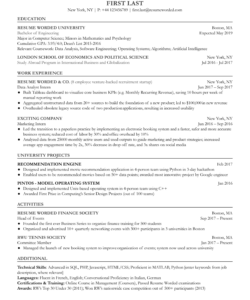Embarking on a career as a disability support worker is incredibly rewarding. You’re not just performing a job; you’re making a profound difference in people’s lives, empowering individuals, and fostering independence. However, before you can dive into this impactful work, you need to navigate the crucial first step: crafting a compelling resume that truly showcases your skills and passion for the role.
Creating a resume from scratch can feel daunting, especially when you want to ensure every key detail is highlighted effectively. That’s where a well-designed disability support worker resume template becomes an invaluable tool. It provides a structured framework, guiding you to present your experience, qualifications, and personal attributes in a way that catches the eye of potential employers and accurately reflects your suitability for this vital position.
Crafting Your Resume: Key Sections and What to Include
When building your resume, think of it as your professional story, tailored specifically for the disability support sector. Each section plays a vital role in painting a complete picture of who you are as a professional. Starting with a clear professional summary or objective is crucial. This short, punchy paragraph at the top of your resume should immediately convey your career goals, highlight your most relevant skills, and express your dedication to supporting individuals with disabilities. It’s your elevator pitch to the hiring manager.

Following your summary, a dedicated section for your core competencies or skills is highly effective. This allows recruiters to quickly scan for the specific abilities they require. For a disability support worker, these aren’t just technical skills; they also encompass crucial soft skills. Consider including:
- Person-centred care planning
- Manual handling and transfers
- Medication administration
- First Aid and CPR
- Communication (verbal and non-verbal)
- Problem-solving and adaptability
- Empathy and patience
- Household management
- Community access support
Your work experience section is where you elaborate on your professional journey. Don’t just list your previous roles and dates; describe your responsibilities using strong action verbs and, where possible, quantify your achievements. Instead of saying “Helped clients,” you could say “Facilitated daily living activities for 5+ clients, fostering greater independence and wellbeing.” Highlight any experience with diverse needs, complex behaviours, or specific conditions. Emphasise how your work contributed to the client’s goals and improved their quality of life.
Finally, ensure your education and certifications are clearly outlined. This includes any relevant degrees, diplomas, or vocational training, such as Certificate III or IV in Disability, Aged Care, or Community Services. Don’t forget to list essential certifications like First Aid, CPR, a NDIS Worker Screening Check (or equivalent), and a driver’s license, if applicable. These credentials demonstrate your foundational knowledge and readiness for the role, making your disability support worker resume template complete and compelling.
Making Your Template Stand Out: Tailoring and Presentation
Simply filling in a disability support worker resume template is the first step; making it truly stand out requires thoughtful tailoring and meticulous presentation. Every job application is an opportunity to show a prospective employer that you’ve done your homework. Take the time to carefully read the job description for each role you apply for. Identify the key skills, responsibilities, and values mentioned, and then subtly weave those keywords and concepts into your resume. This not only shows you’re a good fit but also helps your resume pass through applicant tracking systems (ATS) that many companies use.
Beyond the hard skills, remember that the heart of disability support work lies in interpersonal connections and genuine care. Therefore, it’s vital to subtly highlight your soft skills throughout your resume. Think about moments where you demonstrated exceptional patience, active listening, problem-solving under pressure, or adaptability when faced with unexpected situations. These are the qualities that truly differentiate a good support worker from an outstanding one, and employers are keenly looking for them.
The visual appeal and clarity of your resume are also paramount. Choose a professional, easy-to-read font (like Arial or Calibri) and maintain consistent formatting throughout. Use clear headings, bullet points, and appropriate white space to make the document scannable and digestible. A cluttered or poorly formatted resume can deter a hiring manager, regardless of the excellent content. Always proofread your resume multiple times, and consider asking a friend or mentor to review it for any typos or grammatical errors. A flawless document reflects your attention to detail.
Finally, remember that your resume is often one part of a larger application. A well-crafted cover letter that complements your resume, addressing specific aspects of the job description and reiterating your passion for disability support work, can significantly enhance your application. While not always required, having a list of professional references ready to provide upon request also demonstrates your preparedness and professionalism, reinforcing the positive impression your resume has already made.
Crafting a resume that accurately reflects your capabilities and enthusiasm for disability support work is a crucial step in securing your ideal position. By carefully curating your experience, highlighting essential skills, and presenting a polished document, you increase your chances of making a strong first impression. Remember, your resume is your advocate, speaking volumes about your dedication and readiness to make a meaningful difference in the lives of others.
Invest the time and effort into perfecting this vital document. A well-constructed resume not only opens doors but also instills confidence in your abilities, allowing you to focus on what you do best: providing compassionate and empowering support to those who need it most. Your journey into this fulfilling career begins with a compelling introduction, and your resume is precisely that.


